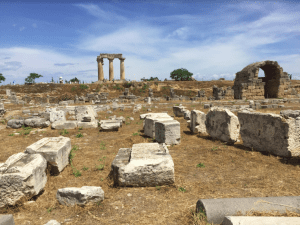 Yes, that’s right. There is a history of socio-political theology, yea, liberation theology and social gospel, that begin in some ways with Calvin. This story has been told in remarkable detail by John Coffey, Exodus and Liberation: Deliverance Politics from John Calvin to Martin Luther King Jr (Oxford, 2014).
Yes, that’s right. There is a history of socio-political theology, yea, liberation theology and social gospel, that begin in some ways with Calvin. This story has been told in remarkable detail by John Coffey, Exodus and Liberation: Deliverance Politics from John Calvin to Martin Luther King Jr (Oxford, 2014).
We are dealing with how folks have read and learned to appropriate the Exodus narrative and Moses as a figure. We are dealing with how Protestants especially have read Exodus, and we are dealing with how political their readings have been. It’ is quite the story and Coffey’s scholarship is admirable.
To kick this post off a few observations. First, Luther himself hated that his themes of freedom — The Babylonian Captivity of the Christian Church and The Freedom of the Christian — were used socio-politically and created the Peasant’s War. He doubled his efforts to argue that freedom in Christ and socio-political freedom were two different agendas.
Second, Calvin — as he always was — was more nuanced than Luther, but for him freedom/liberty was spiritual in relation to God and from the law, but Calvin was writing in a hothouse: his own French followers, the Huguenots, were growing and growing and sometimes politicizing. Coffey makes it quite clear that for Calvin the message of a socio-political freedom was under the surface but the act would a divine act and not the rebellion of citizens.
Third, it is not without import that the Geneva Bible, the Bible of the earliest Reformed wing of the Protestant Church, had a woodcut on the title page that was nothing less than an appeal to what had happened and what would happen. That is, it is a woodcut of the exodus liberation of Israel as the decisive and leading analogy to the (true) church’s liberation from bondage to create a society (yes, socio-political) that was truly free.
Fourth, the Dutch Calvinists, too, saw their story in the Exodus story and their liberation promised in God’s promise to the Israelites of Egypt. For them the Exodus story became patriotic Scripture. Accompanying these socio-political readings was the rediscovery of the Pentateuch as a political constitution. In fact, this movement “would transform political thinking on republicanism, the distribution of property and wealth, and religious toleration” (35, quoting Eric Nelson).
Fifth, the Puritans did not believe the Exodus was enough — liberation from the pope. What needed still to be accomplished was entry into the land, which for the stronger Puritans meant full adoption of the Reformed faith. Complete reformation, not just partial. Archbishop’s reforms undid too much for some Puritans and off to America they went, where this Exodus story and landing on Canaan’s shores were the emphatic notes.
Across the board, then, Calvinists picked up deliverance politics and saw their deliverance primarily as liberation from popery. The appeal was not so much to the laws of Exodus but to its primal narrative, the story of the exodus, which became for them “a divinely inspired political paradigm” (42). As with Luther and Calvin, so with the English Puritans: they unleashed a vocabulary and a rhetoric about deliverance that, in spite of their own passionate denunciations of rebellion, led to socio-political implications (of their own making?).
So we have the Independents like John Owen who loved Cromwell, those who turned the rhetoric of deliverance against those who had not taken the reform far enough — a group that will eventually focus on “local church autonomy,” but that’s getting ahead of the politics of deliverance in the history of the Protestants. Owen read English history through the lenses of Exodus and the Book of Revelation.
These liberationist readings of Exodus, then, are explored in the Glorious Revolution of 1688 and the American revolution of 1776, and Coffey patiently and painstakingly cites evidence of how people from all sides — for and against — used the rhetoric of slavery and deliverance and the Red Sea and Moses as deliverer and savior to support a cause. Yes, opponents of liberation of one group found ways to exercise the Bible on their own behalf — namely through appeal to obedience to authorities.
So when the enslaved Africans in America began to use deliverance rhetoric rooted in the Exodus they were carrying on a Protestant tradition and, at the same time, subverting those who had used the same rhetoric for their own conditions. Prior to the use of deliverance rhetoric to support abolition, some English and Americans were seeing a moral problem in the enslavement of whites — orphans and criminals especially — and the transportation of the same to colonial locations. The glaring contradiction of this very point, seen for instance in John Locke (who opposed [white] slavery but supported the African slave trade), took a century to realize. In the heart of the Enlightenment, some 3.26 million Africans were transported across the ocean to become slaves. Many turned to the Bible for supporting slavery, including the very typical insistence that liberation in the Bible is spiritual and not social or ethnic or racial (e.g., George Whitefield and Jonathan Edwards owned slaves). Our next post will look at the scriptural imagination of the abolitionists and their uses of the Exodus narrative.











